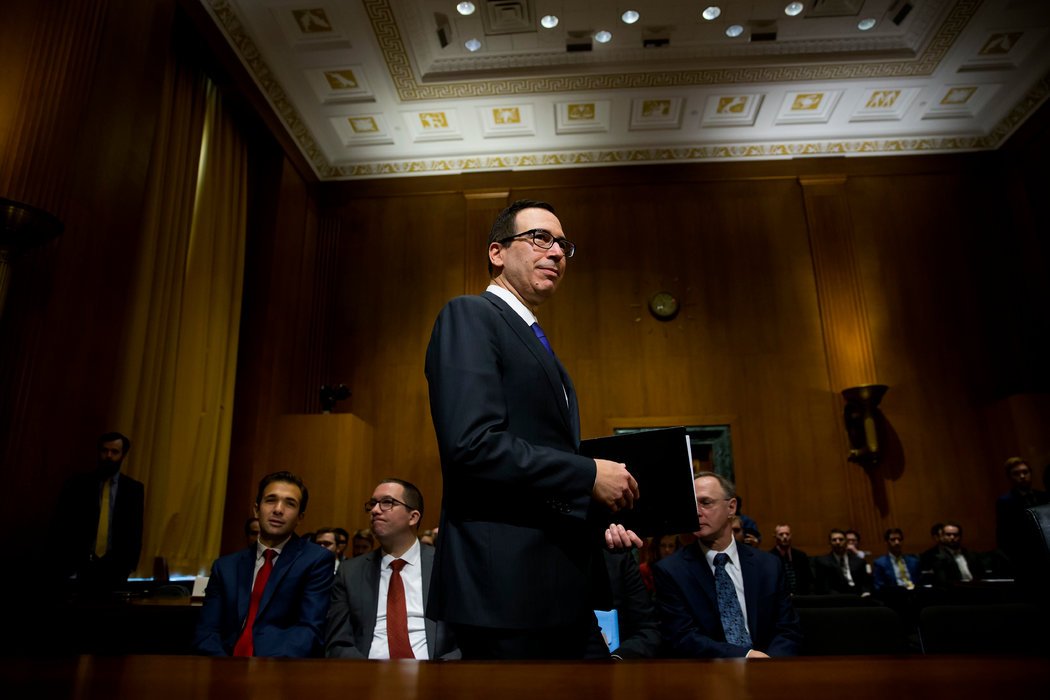Media Report

- Bloomberg reports: "The Trump administration's plan to deploy some of the most restrictive investment limits in its economic arsenal against China marks a setback for Treasury Secretary Steven Mnuchin's effort to take a less confrontational approach toward Beijing. Under the plan, the White House would use one of the most expansive legal tools available to declare China's investment in U.S. companies involved in technologies such as new-energy vehicles, robotics and aerospace a threat to economic and national security, according to eight people familiar with the plans. Mnuchin has been working on the plans since as early as December, but has consistently urged a less aggressive approach that is negotiated with the Chinese behind closed doors."
- CNBC reports: "President Donald Trump plans to bar many Chinese companies from investing in U.S. tech and to block additional technology exports to China, The Wall Street Journal reported on Sunday evening, citing people familiar with the matter. The two measures are set to be announced by the end of the week, and are intended to counter Beijing's Made in China 2025 — a Chinese initiative to be a global leader in technology. The Treasury Department is drawing up rules to block companies with at least 25 percent Chinese ownership from buying companies involved in "industrially significant technology"... The National Security Council and the Commerce Department are also putting together plans for tighter export controls that will not allow "industrially significant technology" to be exported to China."
- CNN reports: "China is freeing up more than $100 billion to help its economy, which is facing fears of a slowdown and an escalating trade war. The country's central bank said late Sunday that it is set to release as much as 700 billion yuan ($107 billion) into the financial system by reducing the amount of deposits that most commercial banks are required to hold. The move to cut the requirement by half a percentage point comes as the Chinese government is dealing with an emerging trade war with the United States and concerns its economy is weakening faster than expected. The reduction will encourage banks to lend additional cash to businesses and can generate more economic activity, analysts say. The cut is due to take effect on July 5, just one day before the United States and China plan to impose steep tariffs on tens of billions of dollars of each other's exports."
Calendar
- 2018-06-24 US to give North Korea post-summit timeline with 'asks' soon: official
- 2018-06-21 As Kim Ends Beijing Visit, China and North Korea Craft New Messages
- 2018-06-20 White House says China's 'economic aggression' is a global threat
- 2018-06-19 North Korea’s Kim makes another trip to China. That complicates things for Trump.
- 2018-06-18 Google, Rebuilding Its Presence in China, Invests in Retailer JD.com
- 2018-06-15 Tough US tariffs on China could begin as early as Friday
- 2018-06-14 Trump Says He May Upset China on Trade as U.S. Tariffs Loom
- 2018-06-13 The Unexpected Winner From the Trump-Kim Summit: China
- 2018-06-12 China suggests sanctions relief for North Korea after Trump-Kim summit
- 2018-06-11 G7 chaos is a PR win for China
News
- CNBC Trump plans to bar China from investing in US tech firms and block more tech exports
- CNN China is unleashing more than $100 billion into its economy
- Bloomberg Mnuchin Suffers Setback in U.S. Plan to Limit China Investments
- CNN China lectures the Unites States on opioid crisis
- The Wall Street Journal China's Xi Tells CEOs He'll Strike Back at U.S.
- Bloomberg Trade War Could Trigger Global Recession, China and Europe Warn
- The Wall Street Journal China, China, China: Beijing Cuts Reserves, but Investors Yawn
- CNBC Xi has strong words for Trump: 'In our culture, we punch back' — report
- Bloomberg Every Step China's Taking to Contain Losses in Financial Markets
- Politico Trump gets ready to slap China with investment restrictions, export controls
- CNN China's app for everything files for huge Hong Kong IPO
- CNBC Beyond the South China Sea: Beijing may target these waterways next
- Newsweek Tiangong-2: China's New Space Station Unexpectedly Dives Toward Earth
Commentary
- The New York Times China Extends Lead as Most Prolific Supercomputer Maker
- Fox News How does China cheat on trade? Let us count the ways
- MarketWatch China won't turn the other cheek in trade flap, warns President Xi
- USA Today Donald Trump will protect American farmers from China's trade retaliation
- MarketWatch Trump bets that power politics can offset weakening U.S. economic fundamentals
- Popular Mechanics China Is Planning a Nuclear-Powered Icebreaker